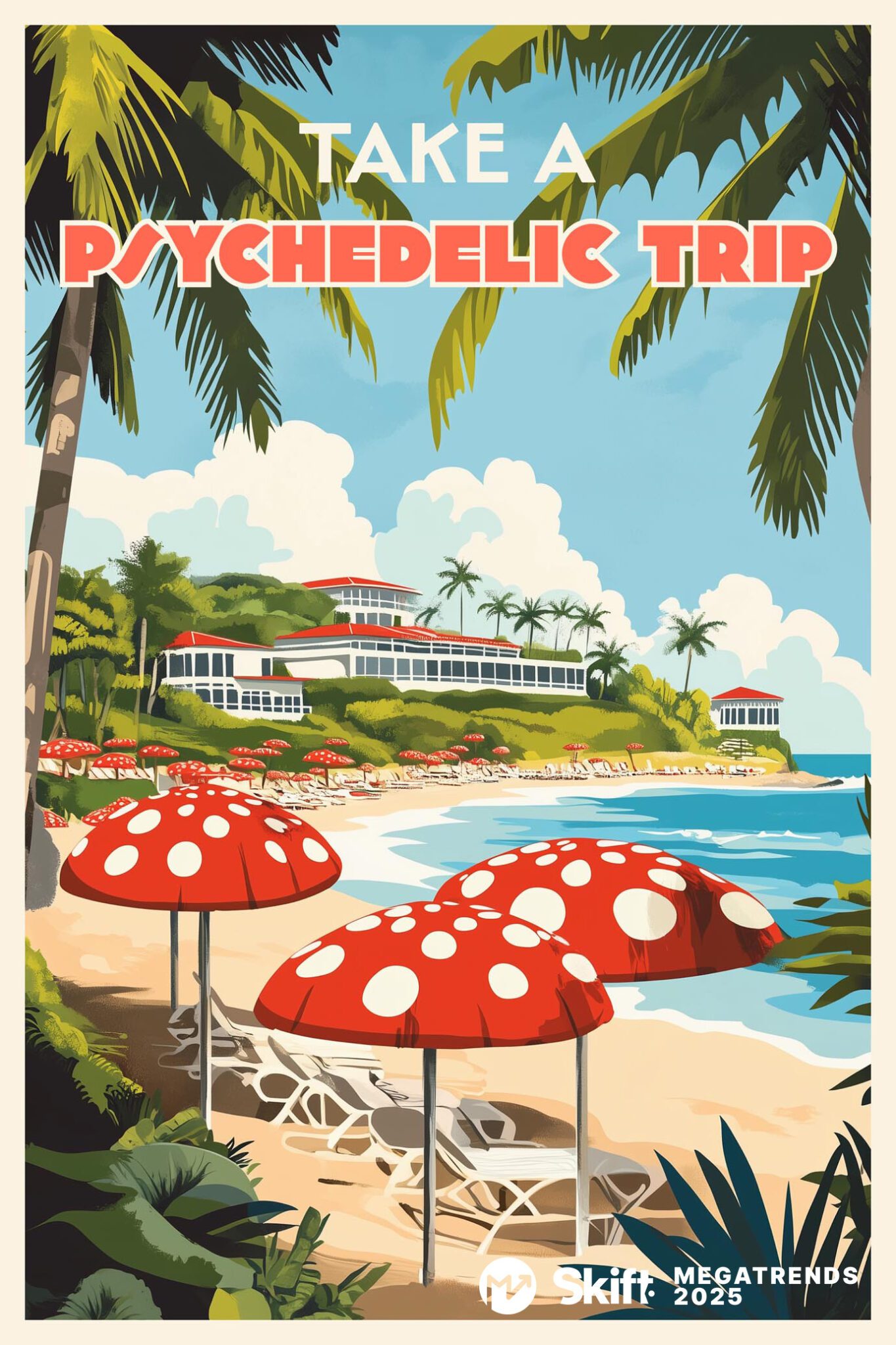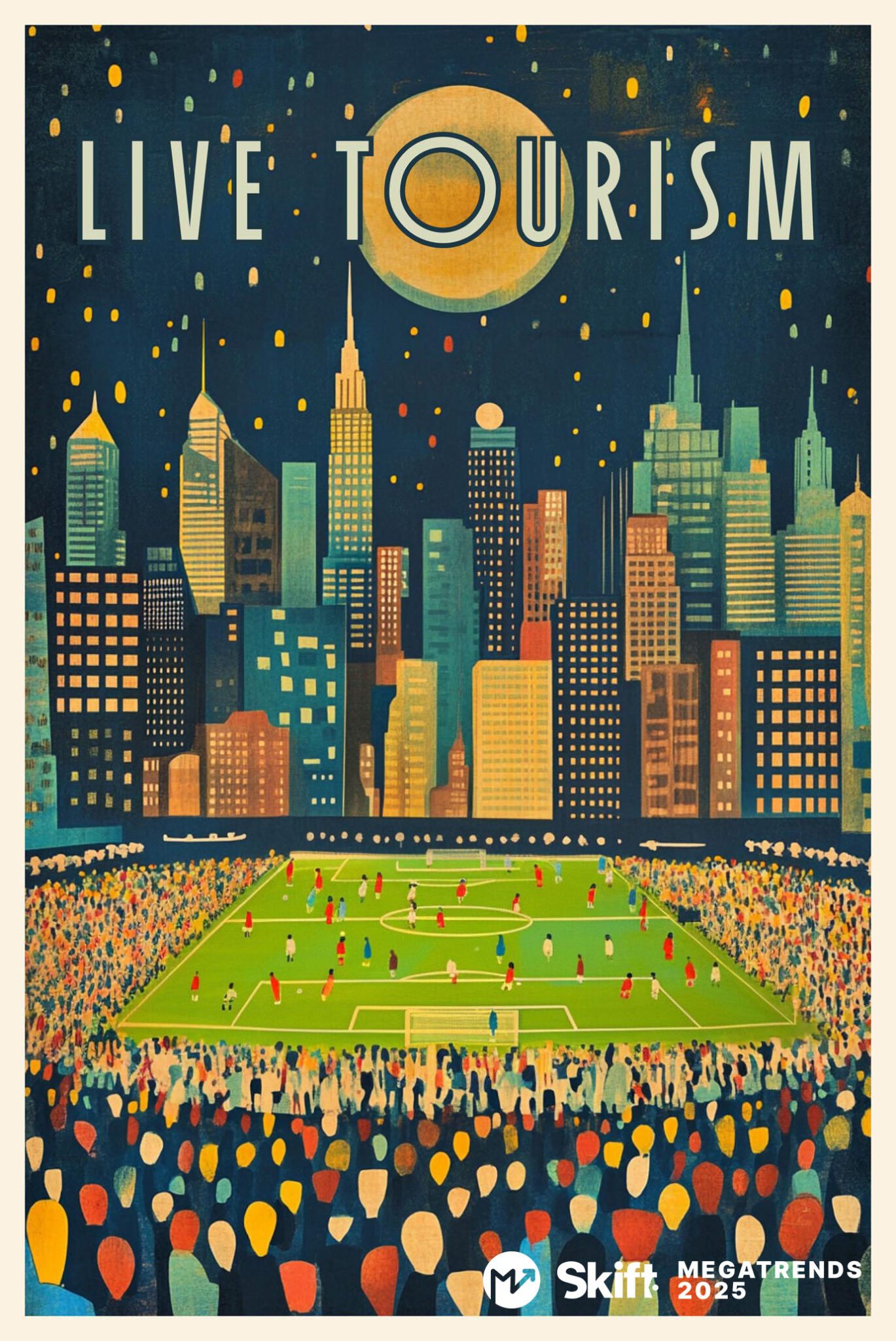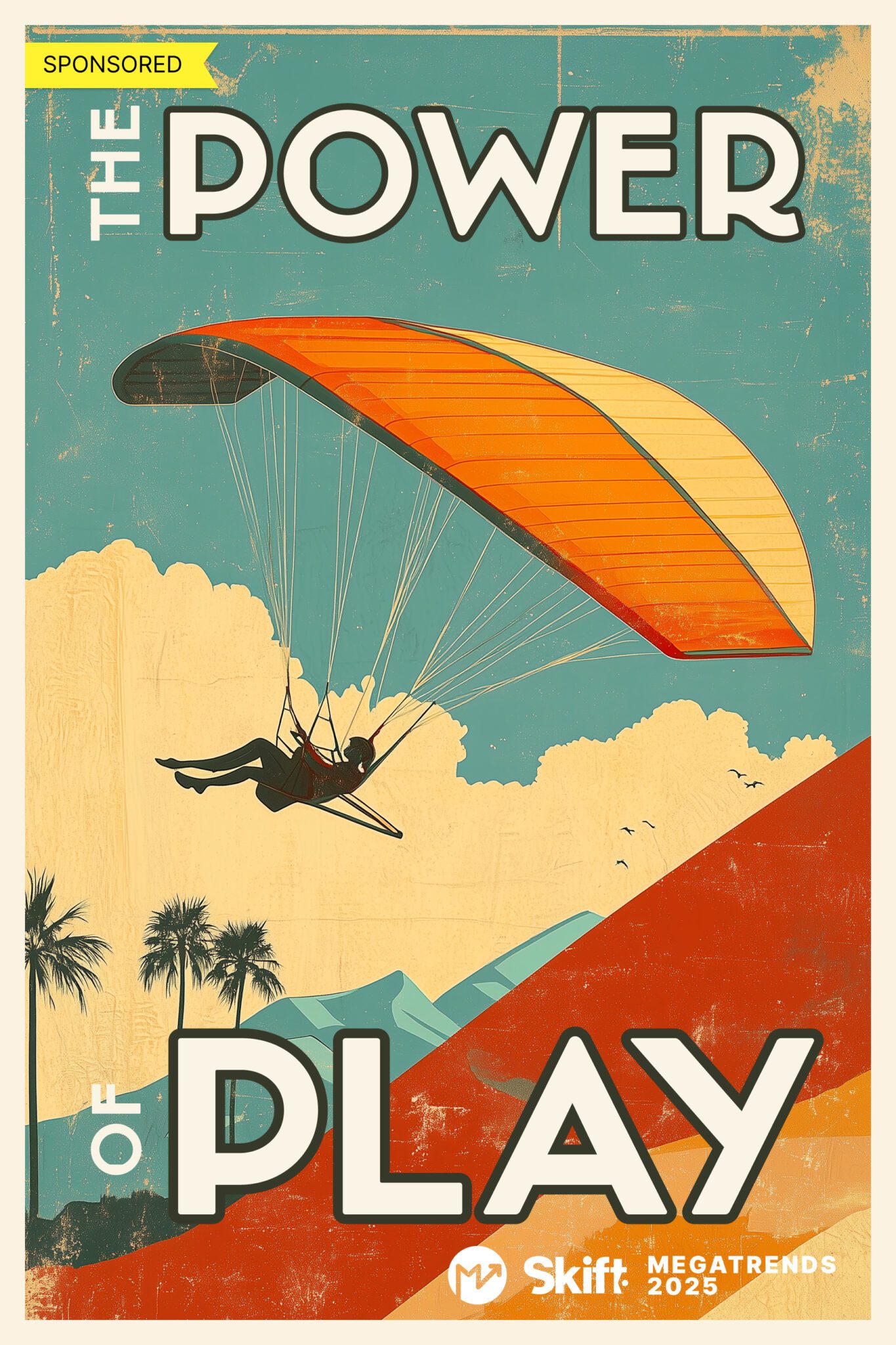Q&A: The Power of Play Is Inspiring a New Generation of Travelers

Qiddiya City + Skift
A growing body of research demonstrates that play is a fundamental human need, which has been reflected by travel demand in the post-pandemic world. According to an October 2024 survey conducted by Skift and Qiddiya City, 86 percent of global travelers agreed that participating in entertainment, sports, and cultural experiences when they travel is important to their overall sense of happiness and well-being.
In addition, more than 70 percent of travelers agreed that in the past five years, they have become more likely to plan travel with an entertainment, sports, or cultural experience as the primary reason for their trip. Among Millennials and Gen Z, that figure approached 80 percent, exemplifying key generational shifts.
Play is critical to personal development, and it underpins global industries like entertainment, sports, and culture. Therefore, providing opportunities for play creates significant economic value for destinations and travel companies alike. SkiftX spoke with Ross McAuley, MD Advisor and Director General, Play Qiddiya City DMMO, about why the power of play is essential for travel companies and destinations as the centerpiece for growth, development, and marketing strategies in the decade to come — and beyond.

SkiftX: What is the inspiration for building a destination — Qiddiya City — exclusively around the concept of play?
Ross McAuley: The inspiration behind Qiddiya City is rooted in this understanding that play is essential to human well-being. We tend to think of play as something just for children, but in reality, it’s essential for all of us no matter our age. As the great playwright George Bernard Shaw once said, ‘We don't stop playing because we grow old; we grow old because we stop playing.’ Play is more than just a break from work; it’s a vital part of how we learn, grow, and connect.
Play unites us and helps us to stay healthy, making it integral to fulfilling travel experiences. We need play to fuel creativity and strengthen our connections with others. All of this is underscored by the recent Skift survey finding that 86 percent of travelers view entertainment, sports, and cultural experiences as key to their overall happiness and well-being when traveling.
How have you seen traveler sentiment and intent around play change, and what’s driving demand for the future?
Traveler sentiment around play has shifted significantly in recent years. Today, more than 70 percent of travelers prioritize entertainment, sports, and cultural experiences when planning their trips, with this trend especially evident among Millennials (80 percent) and Gen Z (75 percent).
Younger generations are facing unprecedented levels of anxiety and social disconnection. Sedentary habits and a decline in human connection are only fuelling these challenges.
Furthermore, the decision-making funnel has been flipped on its head. Rather than choosing a destination first and then looking for things to do, travelers are now deciding what type of experiences they want to enjoy before selecting a location that offers those experiences. This shift underscores a growing demand for destinations that offer immersive, authentic experiences that go beyond traditional sightseeing or ‘fly and flop’ travel.
Why is it important for travel companies and executives to rally around the concept of play?
Play fosters creativity and collaboration, which are essential for driving innovation in the travel industry. By embracing play-centric, cross-industry partnerships, such as those with music, sports, and esports, travel companies can create immersive, unique attractions that resonate with today’s experience-driven consumers.
These collaborations may also open up new revenue streams in rapidly growing sectors, like music tourism and esports. Modern travelers increasingly seek destinations that offer engaging, interactive experiences that are social and memorable. The concept of play aligns perfectly with these desires, enabling companies to design and offer immersive travel experiences, from live events to gaming tourism, that foster lasting connections and loyalty. Recent Skift research backs this up, with over two-thirds of travelers, including 77 percent of Millennials, saying they are willing to spend more on trips centered on entertainment, sports, or cultural activities.
What do you think will be the biggest drivers behind the success of a play-focused destination?
First and foremost, there’s a lot of momentum in this direction. Destinations that prioritize play-focused offerings not only meet evolving expectations but also stand out in the tourism landscape. Notably, 92 percent of global travel executives agreed that destinations that focus on entertainment, sports, and culture will play a crucial role in the next five years, while 84 percent said they are excited about investing in play-focused destinations, according to Skift data.
In particular, I think that the pillars of sports, entertainment, and culture will continue to go from strength to strength, and we’ve seen that destinations that host huge sporting events like the FIFA World Cup or music events, like the Taylor Swift Eras Tour, have benefitted in numerous ways. The travel industry is inherently collaborative, bringing people, ideas, and expertise together to craft immersive experiences that resonate deeply with travelers worldwide. At its core, this shared process of discussion, ideation, and creation embodies the essence of play: vibrant, dynamic, and filled with collective energy.
Why do you say “the time has come” for Qiddiya City?
Ultimately, as we see it, never before has a destination like Qiddiya City been more necessary and critical. While Qiddiya City isn’t a cure for all societal issues, it represents a new vision for urban living centered on sustainable lifestyles, fostering connections, and promoting well-being. We have tried to reimagine what cities can offer to enrich lives and communities.
The world is talking about problems in detached urban living, and through our experiential assets in sports, entertainment, and culture, we hope to offer an answer: experiences that are unique in themselves but also unique in their proximity and concentration.
In what ways do you think Qiddiya City’s play-focused mission will become an inspiration for other destinations around the world?
I think we embody the idea that ‘ordinary needs an extra.’ What we mean is that you’ve got to go that extra mile when it comes to experiences. For example, we don’t just have a motorsport track, we have a track that winds through a waterpark, runs alongside a rollercoaster, and features a corner that is elevated to a height of 20 stories. We have dubbed it ‘The Blade,’ which underneath, features a fully functioning live music venue, something never done before. This is just one example of our philosophy of play, of ‘ordinary needing an extra.’
For extensive research and deeper insights into the power of play and its impact on the future of global tourism, sign up to receive a new report from Skift and Qiddiya City, which will be published in December 2024. Those who provide their information will receive a FREE download that will be sent automatically when the report goes live.
This content was created collaboratively by Qiddiya City and Skift’s branded content studio, SkiftX.
More Trends
Stay Ahead of the Megatrends With The Daily
Skift's morning newsletter delivers breaking news, features, and exclusive analysis from around the world straight to your inbox, five days a week.





















